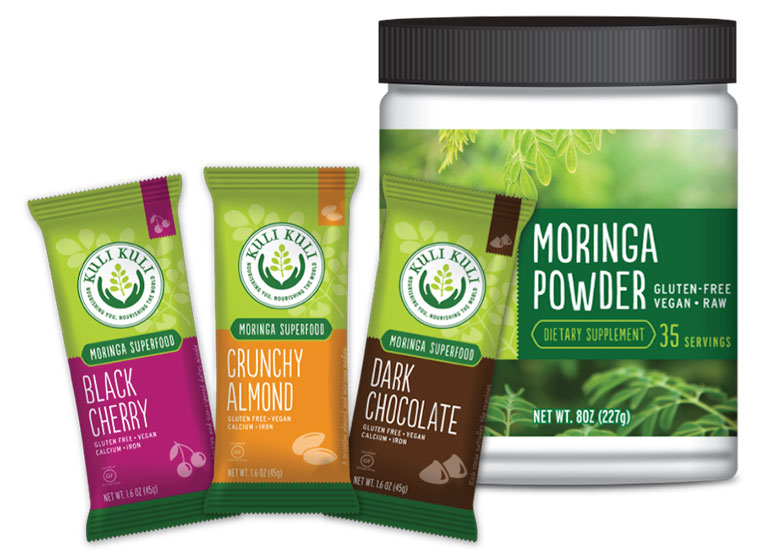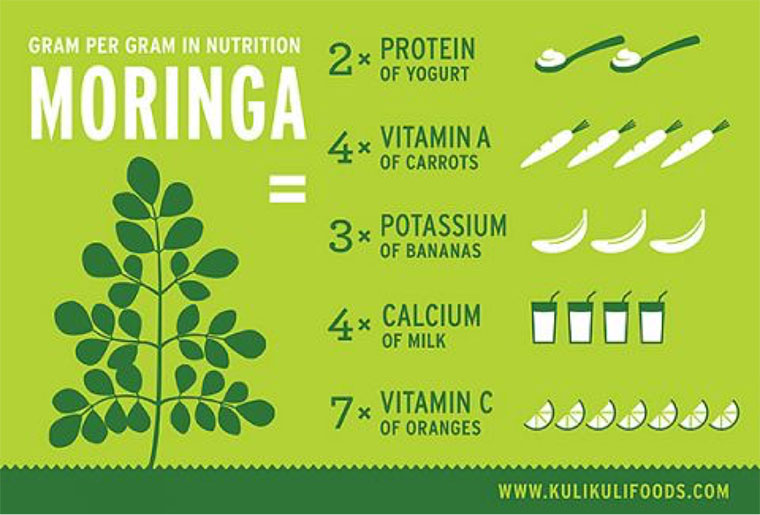
When Kuli Kuli’s founder Lisa Curtis worked with the Peace Corps in West Africa, she discovered the astonishing health benefits of a little-known plant called Moringa. Lisa began eating Moringa to combat the weakness and fatigue brought on by her own starchy diet of rice, beans and millet. The local nurses in the village health center recommended it for its nutrient density.
Morninga, also known as The Miracle Tree, has been highly prized for centuries for it’s medicinal, nutritional, and water-purifying properties. The tiny leaves of the Moringa tree are astonishingly potent. It is widely regarded as one of the most powerful superfoods, and is packed with protein, vitamins, minerals, amino acids and antioxidants.

The Moringa tree grows in subtropical regions and despite it’s miraculous health benefits, has been underrated as a viable food source for humans. Considered a poor person’s crop, Morninga has been fed to cattle and mostly ignored as a possible revenue producing harvest. Kuli Kuli founder Curtis saw the potential to reinvigorate use and demand for the crop with her Moringa based superfood brand.
What makes Kuli Kuli even more remarkable is the company’s commitment to sustainability. Instead of sourcing low-cost Moringa from plantations, Kuli Kuli, along with its nonprofit partners, is supporting local women farmers in West Africa, where Kuli Kuli has created more than 500 sustainable jobs. Kuli Kuli remains committed to sourcing Morninga in the most responsible, sustainable way possible. Founder Lisa Curtis explains:
“There’s a lot of research that shows when you invest in women—when you empower women economically—they’re more likely to spend that extra income sending their kids to school and uplifting the whole community”.
Beyond Kuli Kuli’s commitment to sustainable sourcing, the company donates 10 percent of its profits, and invests the money in local nutrition programs.

